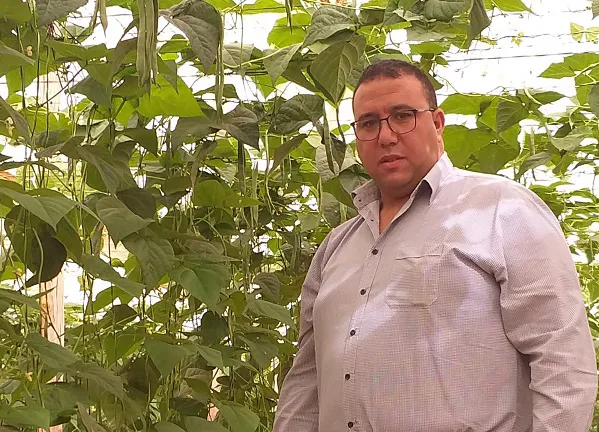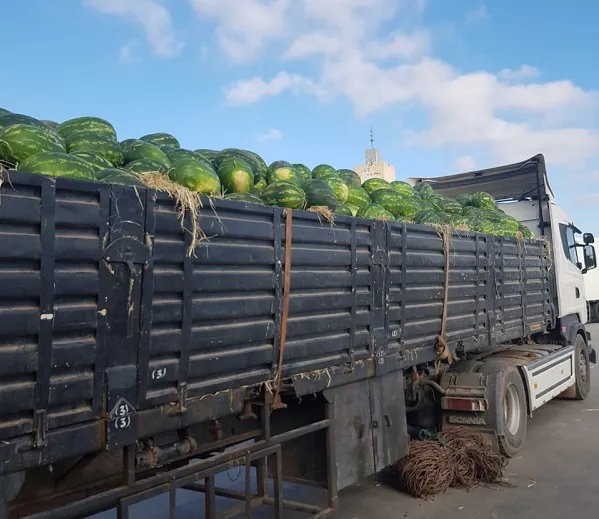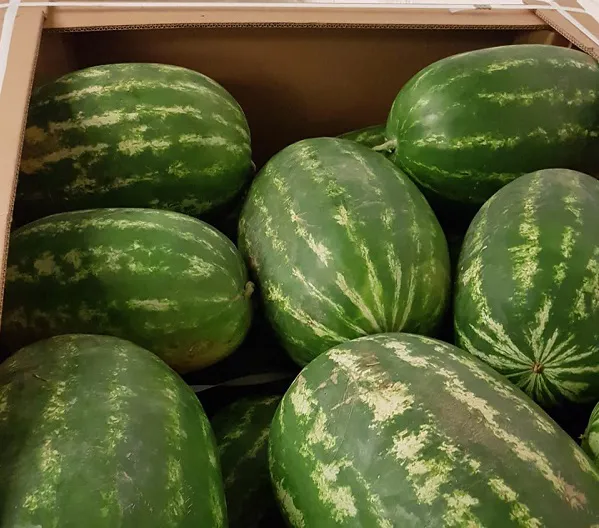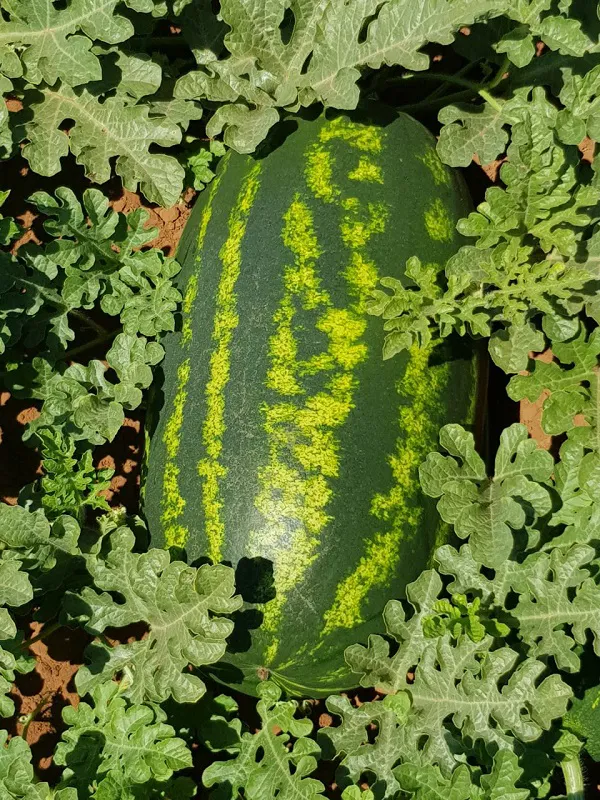In recent years, Morocco has invested massively in developing its agricultural and horticultural sectors. These small-scale farmers used to sell their products on the local market. Now, they've evolved into professional companies that focus on markets such as Europe and Russia. So, Morocco has become a formidable competitor for countries like Spain and Turkey. And the growth continues.
 Azeddine Hamil visits a a plantation in Morocco
Azeddine Hamil visits a a plantation in Morocco
Lyna is a Belgian company. It's been importing and exporting Moroccan and Belgian fruit and vegetables since 2019. "My husband was born in Morocco. And he has many good contacts in the country," says Liesbeth Hamil. "Last year, we started importing Moroccan watermelons and other products. These include tomatoes, courgettes, and aubergines. We exported Belgian apples on a small scale last year too."
"We wanted to explore that market. This year, everything went differently than expected. Unfortunately, the coronavirus pandemic put a stop to many of our activities. As long as there's no vaccine, my husband's health won't allow him to go to Morocco. Personal contact with one's partners is, however, one of the most important parts of doing business in Morocco."

Watermelons
"Our watermelon imports have continued unabated this year. We had a nice season with large volumes and a good quality product. Our fruit-vegetable imports, on the other hand, couldn't get going this year. Our imported products must be of high quality. That's why we've chosen not to do vegetables this year. To compensate for that, we started exporting Moroccan and Belgian potatoes and onions to Mali and Mauritania," says Liesbeth.
Quota
Liesbeth says it's challenging to sell Belgian top fruit in Morocco. "We didn't export any apples this year. Apple prices in that North African country are too low. There are currently many French apples on the market. And Morocco has invested a lot in its apple cultivation in recent years. The French retailer, Carrefour, is also an emerging player there. It probably has agreements with French companies."
"Quotas are another challenge. These protect the Moroccan market from imports. Despite the challenges, there's a lot of demand for Belgian apples. But, it's difficult to drop your prices. We, nevertheless, believe there's space for Belgian apples on the Moroccan market."

Professionalism
"The demand for Moroccan products from Belgium and the Netherlands is noticeably increasing. Morocco has a wide product range, with an annual improvement of quality," explains Hamil. "Their traditional farming methods are all but obsolete. Companies are professionalizing and obtaining certificates to meet European requirements. They also focus a lot on sustainability and are investing a lot in green energy."
"Just like in Europe, Morocco's sorting centers are largely automated. Sorting was done mostly manually for years. But in many cases, this is no longer the case. Moroccan companies are also starting to attract large investors. That's because of the good farming land and low labor costs. So, many companies see potential in that country."

Lyna still has many plans for the future. For now, however, it remains to be seen how the COVID-19 situation develops. "Our hands are currently tied. But, once the vaccine is ready, we expect to make good progress. We haven't been idle either. We're making deals with reliable Belgian and Dutch partners. These parties are eager for good-quality Moroccan products. Next year, we want to start with citrus and pomegranate too. This virus has created a lot of barriers this year. But we're more optimistic about next year," concludes Liesbeth.
Liesbeth Hamil
Azeddine Hamil
Lyna
Guldenbodemweg 21
3700 Tongeren
+32(0)483 084 061
[email protected]
